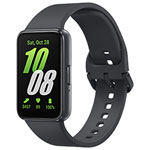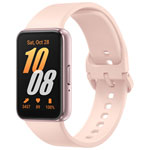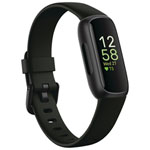How A Fitness Tracker Can Help You
There’s no better motivator than a personal fitness tracker to guide you through your fitness journey. Today’s fitness trackers, including fitness watches and bracelets, are almost as good as having your own personal trainer. They’re motivational tools that stay with you all day long, helping you set healthy living goals in every aspect of your life. With raw data and app-based feedback, fitness tracker watches help you set and achieve your daily activity and dietary goals no matter where you are.
One of the biggest challenges of getting fit is finding the daily inspiration to do the necessary work. It's easy to get lost in a good book or an interesting webpage, so fitness bands, watches, and trackers will notify you when it's time to take a break. Once you're up and moving, it's easier to carry your goal all the way to the finish line.
They do their job discreetly, too. Brands offer different designs for men's fitness trackers and women's fitness trackers, with unique band widths and colour options. You can even find designs for kids, with pop culture prints and bright, colourful finishes.
What is the best fitness tracker for beginners?
Great beginner-friendly options include the Fitbit Inspire, Garmin Vivosmart, and Xiaomi Mi Band. These models offer essential features like step counting, heart rate monitoring, and sleep tracking at affordable prices.
Do fitness trackers work without a phone?
Yes, most fitness trackers can record steps, workouts, and heart rate without a phone. However, syncing with a smartphone app is usually required to view detailed stats, set goals, and access insights.
Are fitness trackers accurate for steps?
Fitness trackers are generally accurate for step counting, though minor variations can occur depending on wrist movement and walking style. Newer models use improved sensors and algorithms to enhance accuracy.
How do fitness trackers measure heart rate?
Most fitness trackers use optical sensors that detect blood flow changes through your skin. While not as precise as medical devices, they provide a reliable estimate for general fitness tracking and trends over time.
Top Features of Today’s Fitness Trackers
Not all fitness trackers offer the same features, but a number of useful features have become standard in many of today’s popular models. Topping this list are features like GPS tracking, training modes, heart rate monitoring, and step counting.
These features help you accurately measure your exercise routes, but they can also help you track how your body is responding to your workout. Fitness trackers with VO2 max features and heart rate monitors tell you when your body is at its peak, so you can stay in your optimal heart rate zone and at your optimal blood oxygen level for the right amount of time. Like a personal trainer, the right fitness tracker not only tells you what you've done, but how to fine-tune it for your body to reach attainable, healthy goals.
While both have a strong fitness focus, fitness trackers and smartwatches offer a slightly different range of capabilities. Most fitness trackers look sportier and have less downloadable app features than similar smartwatches, but they're more durable and available at a lower price point, so they're easier to integrate into your lifestyle.
Receive Valuable Fitness Feedback, Continually
Today’s fitness trackers create continual feedback that lets you see where you’re doing well and where you may need improvement. They provide you with positive reinforcement in an instant, and encourage you to work a little harder when you still need to reach your goals. Fitness trackers with features like pulse oximeters, ECG capabilities, and GPS tracking help you process all of the data they collect—so you have everything that you need to create an up-to-date, personalized fitness routine every day.


























